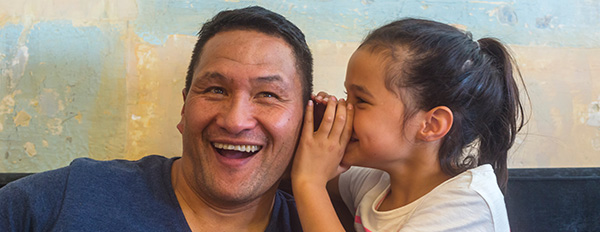|
Since 2014, the Fatherhood Research and Practice Network (FRPN) has awarded funding to 20 research projects. New reports for two projects are now available.
Participation Dosage in Key to Kāne: A Pilot Text Messaging Intervention for Fathers
Key to Kāne is a pilot, technology-assisted, text-messaging intervention for fathers of children aged 0 to 12, delivered in Hawai’i that focuses on topics having the potential of supporting father involvement.
Through FRPN-funding, University of Hawai'i researchers assessed both the determinants of the extent to which participating fathers read text messages (i.e., reading dosage) and whether different reading dosages differentially affect intervention outcomes.
Findings of this study indicate that many fathers do not read any messages, while many others read most or all messages. Additionally, quantitative analysis suggests that higher reading dosage does not encourage fathers’ engagement with their children. Native Hawaiian/Pacific Islander fathers were more likely than non-Native Hawaiian/Pacific Islander fathers to be in the no-dosage group; fathers with more children were more likely than fathers with a smaller number of children to be in the no-dosage group; and fathers who experience no socioeconomic challenges were more likely to be in the high-dosage group.
Download the study.
Testing the Feasibility of an Interactive, Mentor-Based, Text Messaging Program to Increase Fathers’ Engagement in Home Visitation
FRPN awarded funding to researchers at the University of Michigan to evaluate the implementation and usage of Text4Dad in six Healthy Start Engaged Father program sites located in urban and rural areas of Michigan. Text4Dad is a text messaging program to facilitate communication, interaction, and social support between fatherhood Community Health Workers (F-CHW) and the clients on their caseload.
Researchers concluded that fathers and F-CHWs found Text4Dad useful and relatively easy to use. Data suggested that Text4Dad could be implemented in community fatherhood programs, and qualitative data supported the notion that Text4Dad helped fathers stay connected to and engaged with the fatherhood program. Because F-CHWs needed ongoing technical assistance throughout the intervention, there is opportunity to more fully implement the mentorship and social support components of Text4Dad in the future.
Review the study.

|